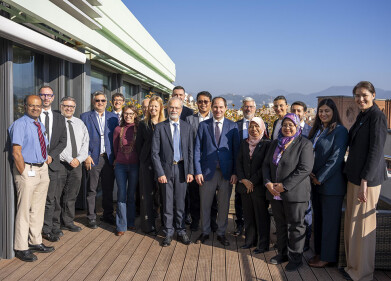Air clean up
How Successful was Delhi’s Odd-Even Car Policy?
Feb 07 2016
The Delhi government took steps at the beginning of this year to try and curb the rising levels of air pollution in the Indian capital. In 2014, the World Health Organisation (WHO) found that 13 of the top 20 most polluted cities in the world were in India, overhauling the Chinese. However, it wasn’t until the last month of 2015 that the government announced plans to address the issue.
As of January 1st 2016, only odd-numbered license plated cars were allowed on the capital’s roads on odd-numbered days of the month, and vice versa for even numbers. In this way, the government attempted to effectively cut the number of vehicles in action by half and reduce emissions by 50%, as well. The scheme ran on a trial basis for two weeks, with a view to continuing it in the event of its success. Just how successful was it?
Problems with the Scheme
Though the scheme was a step in the right direction, there were a few basic problems with it from the outset. Firstly, the ban did not apply to all vehicles, only privately owned ones. This meant that taxis and lorries were exempt from it, the latter of which are some of the biggest polluting offenders. Meanwhile motorbikes and female drivers were also exempt, meaning that in actuality, far more than half of the almost nine million vehicles did end up on the roads.
Secondly, the public transportation system struggled to cope with the increased demand on its services. In the run-up to the trial, a prominent Delhi judge encouraged the use of buses, indicating that he would be doing so and prompting his fellow judges to do the same. Though there were no major problems and a host of supplementary buses and trains were laid on to cope with the strain, clearly a better organised service will be key to dealing with such traffic if the scheme is to continue.
Finally, and most crucially, it's unclear whether the scheme achieved a reduction in pollution, which was essentially its only aim. Early testing indicated that any fall in pollution levels was negligible and couldn’t definitively be attributed to the scheme. However, removing a significant proportion of the cars from the city’s streets is surely a beneficial thing in the long run.
Will the Scheme Continue?
It is now up to the Delhi government to decide whether to take the policy forward in the fight against pollution. They have already made moves to ban old trucks and buses which cause the highest amounts of emissions, and the odd-even policy was a key step in continuing the struggle.
Now the government are turning to their people for the answers. As is true with so many political and environmental problems, flexibility is key to solving air pollution abatement challenges. With this in mind, the government are conducting a city-wide survey to hear the views of their constituents. People can vote on whether to keep the scheme alive by sending an email to oddevenidea@gmail.com, attend one of many public meetings being chaired around the city in early February or call a special hotline to cast their vote. Once the data has been collated and the extent of the ban’s beneficial effects on the environment has been fully assessed, a decision will be made. For now, the future of the odd-even policy hangs in the balance.
Events
Feb 05 2025 Nantes, France
Feb 16 2025 Kampala, Uganda
Feb 26 2025 Chennai, India
Feb 26 2025 Tulsa, OK, USA
WATERTECH CHINA (GUANGDONG) 2025
Mar 05 2025 Guangdong, China












